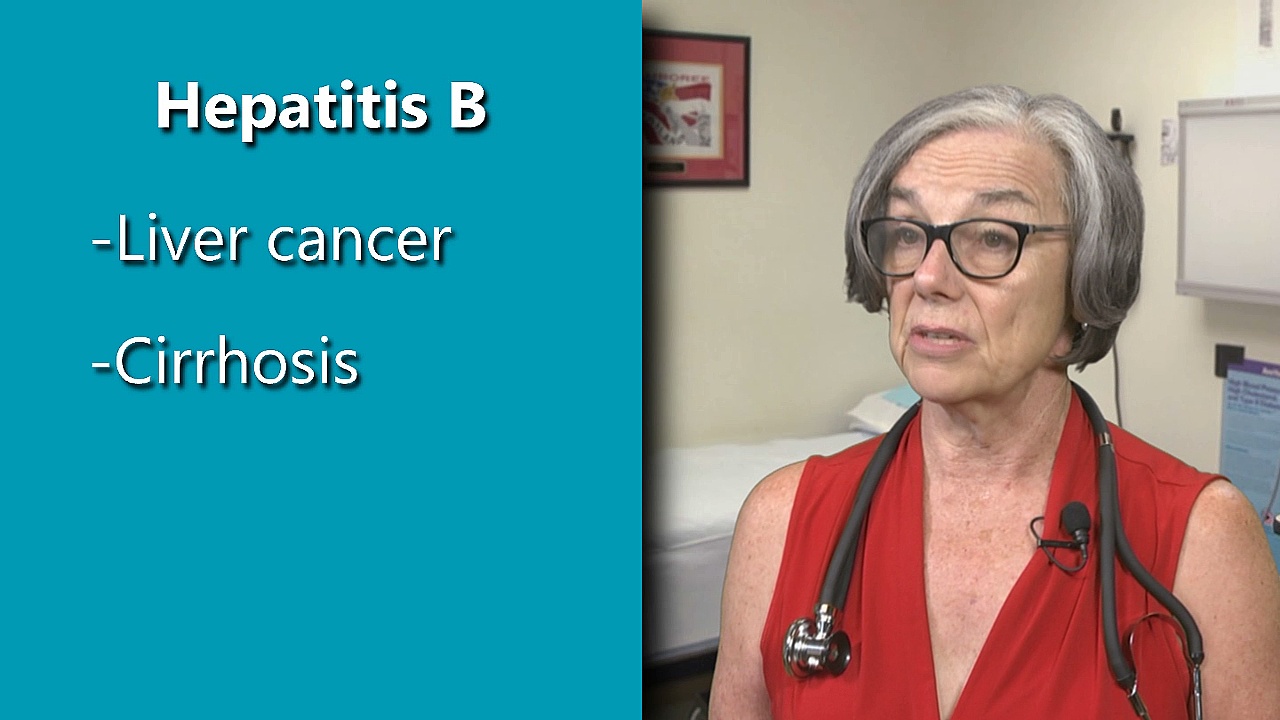May 1, 2019
The bottom line: Hepatitis B is a serious liver infection that can be short-term or long-term. Some people can die from it or suffer other serious diseases like cancer, while others experience no symptoms. People can become infected through sexual contact, by sharing needles, or from an infected mother passing it to her baby at birth.

Hepatitis B is a liver infection caused by the hepatitis B virus. Anyone can contract the virus if the blood, semen, or another body fluid from a person infected with the hepatitis B virus enters his or her body. This can happen through sexual contact, by sharing needles, or from an infected mother passing it to her baby at birth.
“The ‘B’ in ‘hepatitis B’ could just as well stand for ‘bad,’” said Austin pediatrician Marilyn M. Doyle, MD. The Texas Medical Association (TMA) Committee on Infectious Diseases member said she believes this because some people with hepatitis B develop severe illness – serious enough that some even die from it. In many cases, hepatitis B leads to liver cancer or cirrhosis of the liver – another serious condition in which the liver becomes scarred – or liver failure. Hepatitis B causes most liver cancer cases worldwide, according to the Hepatitis B Foundation.
Hepatitis B has two stages: acute (short-term) and chronic (long-term). The acute stage is often symptomless, so infected people could spread the disease unknowingly. Those who feel symptoms could experience fever, tiredness, lack of appetite, stomach pain, nausea and vomiting, dark urine, a light-colored stool (poop), or yellowish skin.
With or without symptoms, the acute stage normally resolves within six months. Risk for longer-term infection is related to the patient’s age: Approximately 90% of infected infants suffer chronic infection, compared with 2% to 6% of adults.
“Hep B is particularly bad in infants and young children ,” Dr. Doyle said.
The best way to prevent hepatitis B is by getting vaccinated, according to health officials like those at the Centers for Disease Control and Prevention (CDC).
Doctors began vaccinating infants in the U.S. to protect them from hepatitis B in 1991, and infection rates plummeted 89% in just 10 years, CDC reports. Infants should receive a three-dose series – at birth, at age 1-2 months, and again at 6 months of age. Unvaccinated adults and adolescents should get a two- or three-dose series, depending upon the vaccine used. (There are six different vaccines for hepatitis B in the U.S.)
Yet in 2016, more than 1,698 people in this country – and more than 780,000 worldwide – died from this viral liver infection, according to CDC and the World Health Organization.
“My family and I are all vaccinated. I recommend vaccination for you and your family too,” said Dr. Doyle. “Prevention is always better than treatment.”
This release is part of a monthly TMA series highlighting contagious diseases that childhood and adult vaccinations can prevent. Some diseases covered thus far are:
TMA designed the series to inform patients of the facts about these diseases and to help them understand the benefits of vaccinations to prevent illness. Visit the TMA website to see efforts to raise immunization awareness and how funding is used to increase vaccination rates.
TMA is the largest state medical society in the nation, representing nearly 53,000 physician and medical student members. It is located in Austin and has 110 component county medical societies around the state. TMA’s key objective since 1853 is to improve the health of all Texans.
--30--
TMA Contacts: Brent Annear (512) 370-1381; cell: (512) 656-7320; email: brent.annear[at]texmed[dot]org
Marcus Cooper (512) 370-1382; cell: (512) 650-5336; email: marcus.cooper[at]texmed[dot]org
Connect with TMA on Twitter, Facebook, and Instagram.
Check out MeAndMyDoctor.com for interesting and timely news on health care issues and policy.